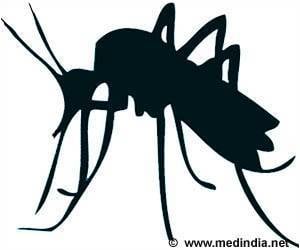Mothers infected with malaria during pregnancy could pass on their cells to the baby and affect their immunity, finds a study.
Highlights
- Malaria is one of the leading causes of death in the low and middle-income countries.
- Scientists have found that when mothers are infected with malaria during pregnancy, they could affect the baby’s immunity.
- Further research needs to be carried out to know how the maternal and infant cells interact and affect the risk of malaria.
The placenta is capable of blocking the infectious agents and could easily pass oxygen and nutrients to the baby. It is also capable of exchanging the cells between the mother and the child called “microchimerism.”
Microchimerism refers to the cells that originate from another individual and are genetically distinct from the host cells.
Babies are found to carry a small number of foreign cells that are acquired by their mothers. This is in the order of few maternal cells for every 100,000.
The research team found that babies born to Tanzanian mothers infected with malaria during pregnancy. These infections had traveled to the placentas and had evidence for more maternal cells at the time of their births with an average of 1%.
The levels also rose to few more cases where it was higher than 10%. Scientists were surprised because of the increased levels of mother’s cells in the baby’s blood.
Lasting Effect
The research team looked at the health records of the babies and found that those who had a higher level of maternal microchimerism were twice likely to be infected with malaria during childhood. Only half of them were likely to get sick from infection; this could suggest that the mother’s cells transferred might offer some protection against the disease.
- Direct action of the mother’s immune cells - Recognizing and acting on the malarial parasite in her child’s body.
- Indirect action by teaching the child’s immune system to recognize and react to the pathogen.
The research study was conducted by examining 53 umbilical cord blood samples collected from pregnant women and babies who were enrolled in a study in Muheza, Tanzania from 2002-2006.
Around half of the women were found to have placental malaria. The infected women had inflammatory placental malaria (a condition where the placenta gets diseased and could stop proper functioning).
The research team also looked out for the amount of maternal DNA that is present in the baby’s umbilical cord blood. This represented the level of maternal microchimerism in children when they were born.
Even though, it is not known on how long the level would persist after birth. Women with placental malaria were found to give birth to babies that had higher-than-average maternal microchimerism.
Women with inflammatory placental malaria gave birth to babies who had even higher average levels.
Further studies would help to explore on how the maternal and infant cells interact to affect the future malaria risk. And on how long it would affect the high levels of maternal cells that persist during children’s lives. And also how a person’s microchimerism would affect the susceptibility to childhood infections.
Malaria
Malaria is caused by the bite of an infected female anopheles mosquito. Plasmodium falciparum is the most common of the five species of mosquitoes that cause malaria. It is considered to be a leading cause of death in low and middle-income countries. Children under the age of 5 and pregnant women are at a higher risk of malaria.
References
- Whitney E. Harrington, Sami B. Kanaan, Atis Muehlenbachs, Robert Morrison, Philip Stevenson, Michal Fried, Patrick E. Duffy, J. Lee Nelson. Maternal microchimerism predicts increased infection but decreased disease due to P. falciparum during early childhood. The Journal of Infectious Diseases, 2017; DOI: 10.1093/infdis/jix129
- 10 facts on malaria - (http://www.who.int/features/factfiles/malaria/en/)
Source-Medindia
















